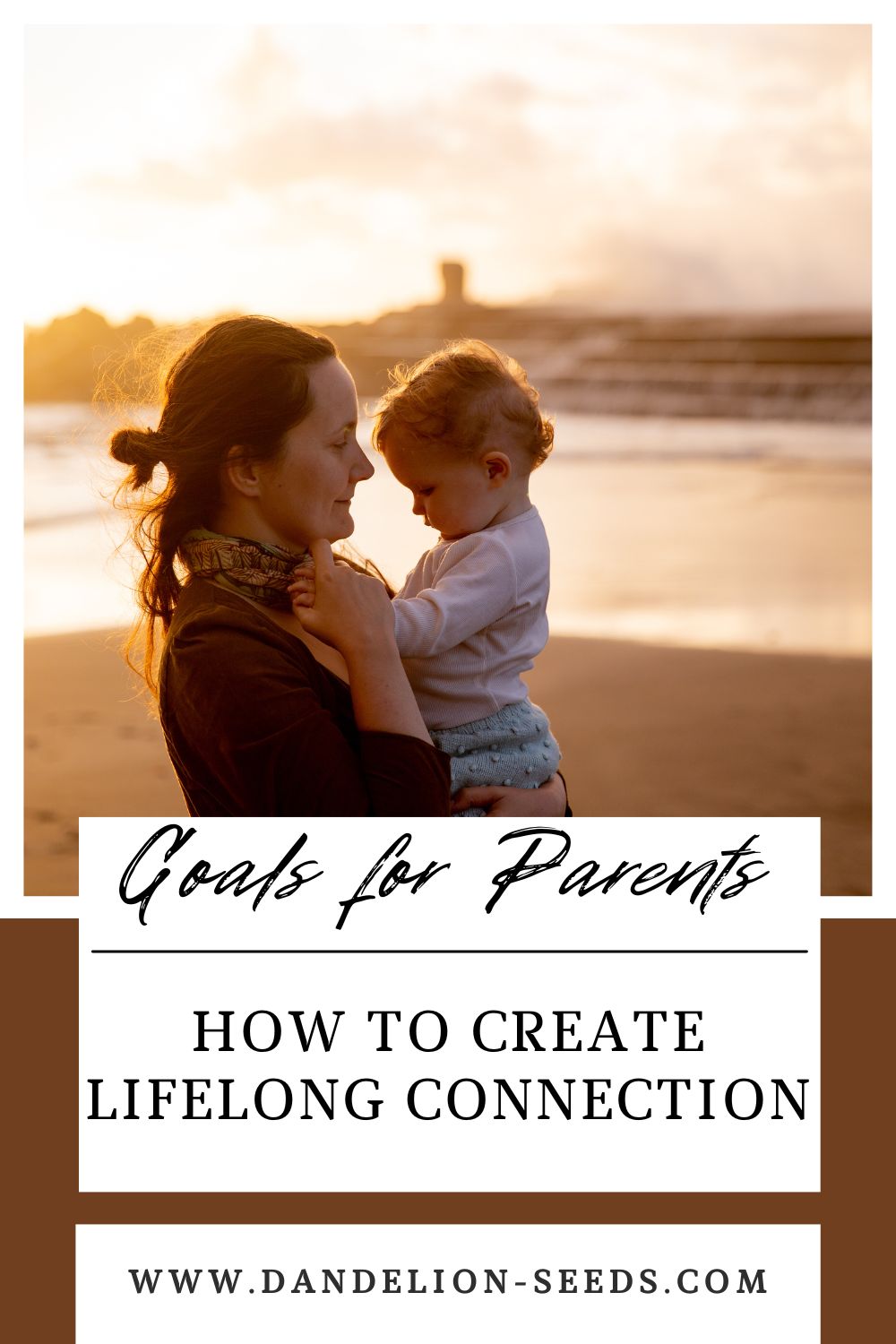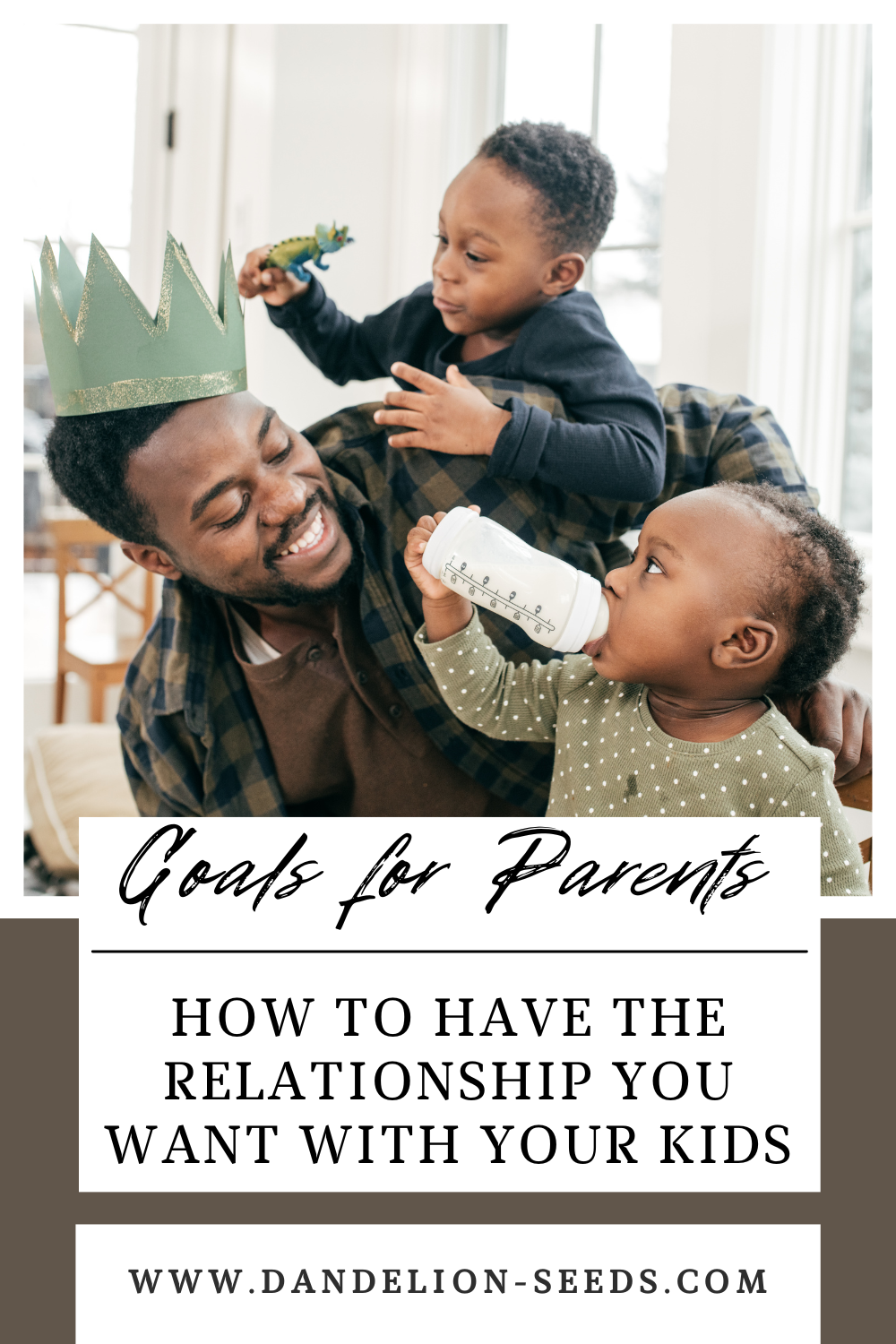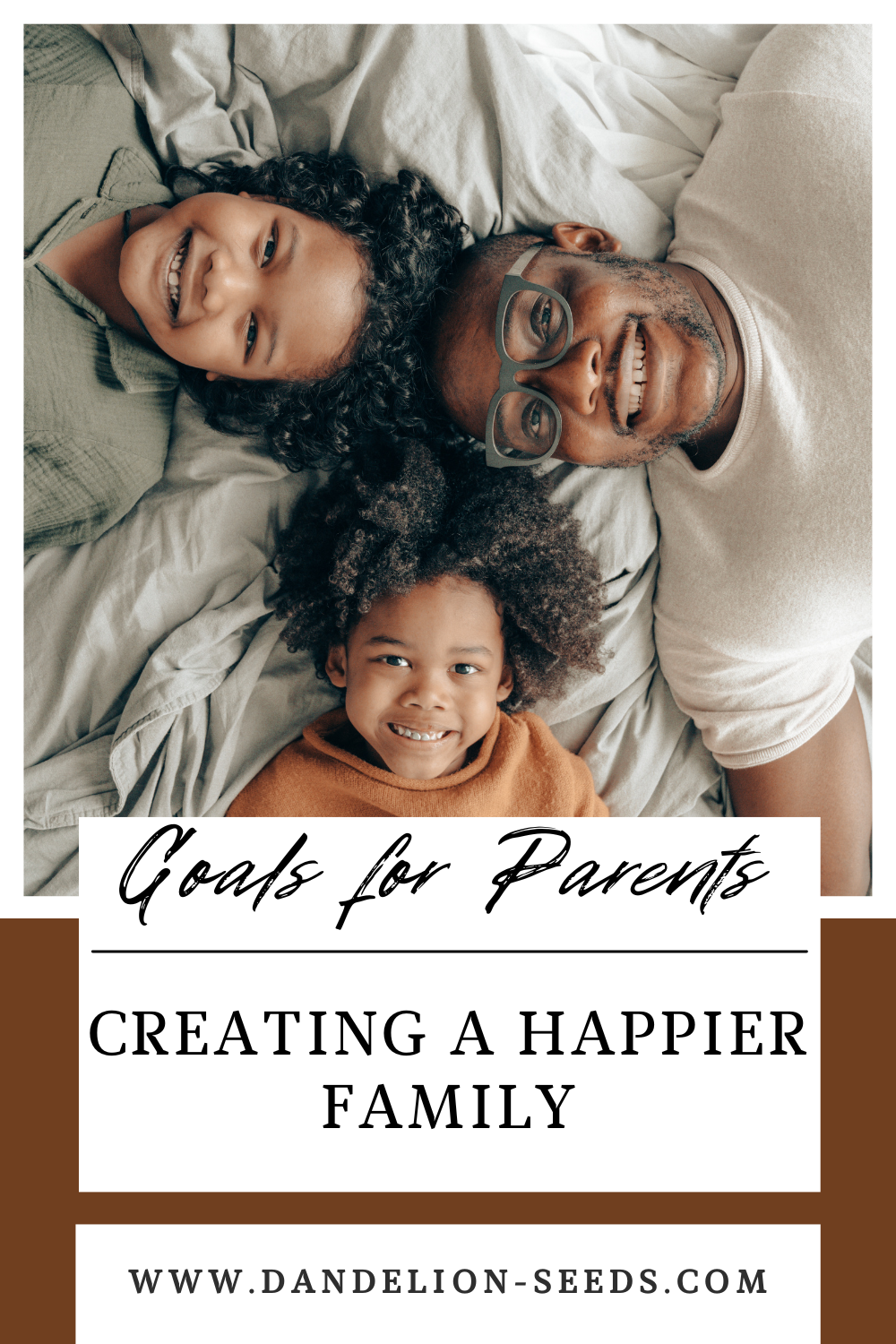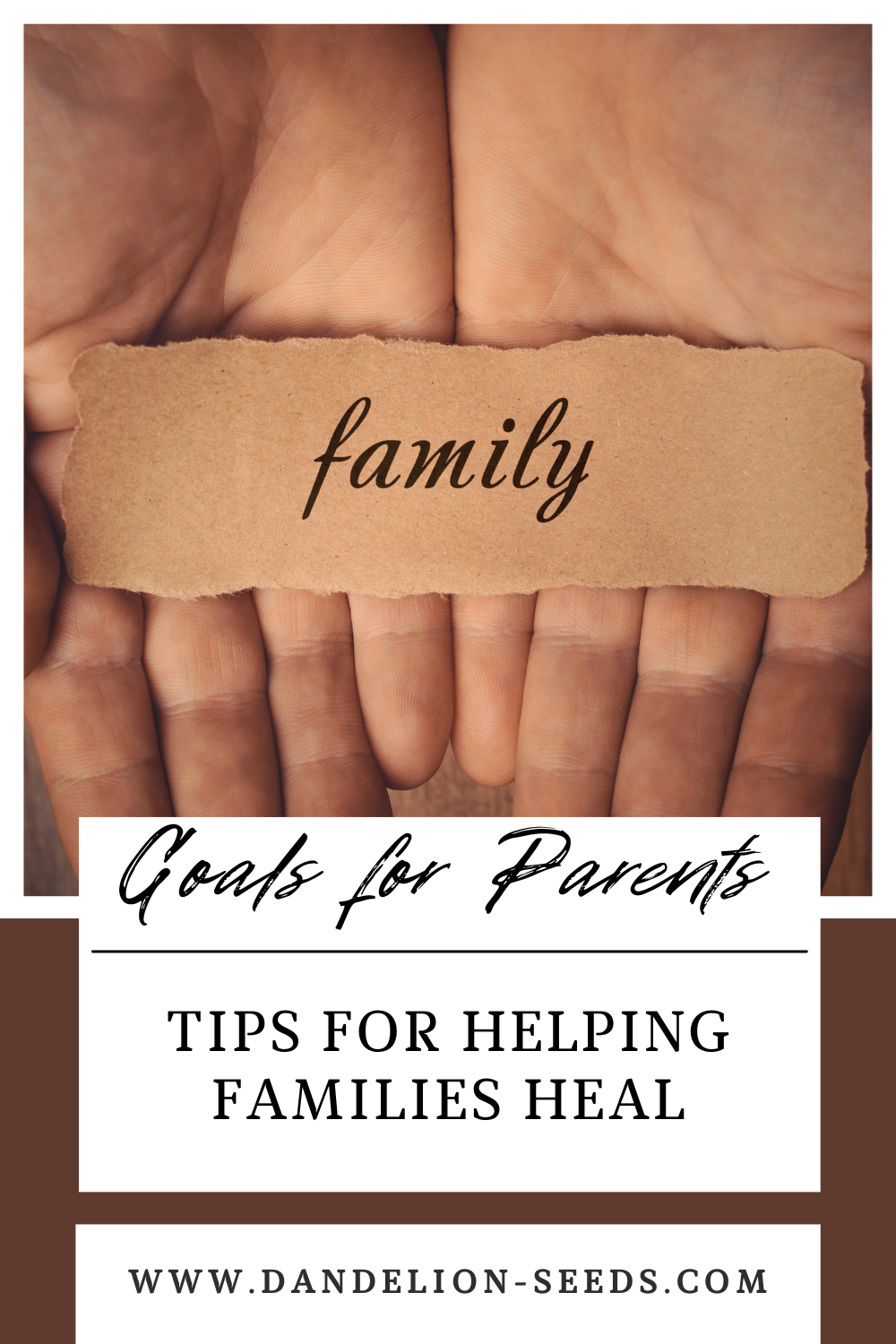
Sign in
Don't have an account with us? Sign up using the form below and get some free bonuses!

Parent goals: "Have a perfect relationship where everyone feels emotionally connected all the time. Life is always one beautiful, smooth path forward. Rainbows and unicorns abound."
Parent goals like that are effective exactly zero percent of the time. They're completely unrealistic. However, we often create all sorts of goals that--honestly--aren't all that different.
Some parent goals sound like, "Self care! Sounds great. I'll do it!"
Or perhaps, "I will stop yelling."
While these are certainly valid big picture parenting goals, I have news for you: they don't work. At least not when we leave them like this.
These parenting goals, and others like them, often fail for the following three reasons:
Our goals are often too vague.
We often choose our goals without input from our children.
We forget our "why."
If we want to raise kids with whom we can have a secure, joyful, and lifelong connection, we must be intentional about it--and our goals need to reflect the life we aim to create.

When we create solid parenting goals and follow through, we can get--and stay--closer to our children. It's a lifelong investment. Here's the secret: the goals need to be heart-centered, while still connecting to the rational part of the brain.

Let's go through the antidotes to each of the three problems above:
Tell your brain the details of what changes, specifically, you want to make. The more detailed the changes are, the more achievable they'll be. Describe what we want to change and exactly what that will look like for us.
What actions will we take, specifically, to achieve our parenting goals? This makes it easier for our brain to process, and therefore, easier to implement.
Using the examples above, although self-care and a positive parenting style are absolutely critical skills for healthy relationships with our children, they're entirely too vague. The human brain wants the details of exactly what to do, along with when and how.
Further, the brain can't learn in negatives.
In a simplified example, if I say, "Don't use the red pen," that's all well and good, but I need to tell my brain what to do, instead. "Use the blue pen instead of the red one" is actionable. My brain knows just what I need.
The red pen example is the equivalent of "I will stop yelling." Well, okay, great -- but how? What's the alternative, and how do I get to the point of consistently doing the alternative? What does that look like?
Further, while "self-care" sounds like a good thing (and it is, if we know what we want to achieve by it), it's entirely too nebulous for the brain to grasp. I might be aware that my own needs matter and that I need some way of honoring them in my daily life, but how?
As I wrote in the self-care section of Peaceful Discipline, "I’ve never spontaneously ended up in a bubble bath and wondered how I got there."
We can read all the books in the world about how to handle difficult situations, how to create long-term parenting goals, and how to create a happier family, but if the brain lacks the specific map it needs, those ideas will be right up there with rainbows and unicorns.
I'll share examples of effective parent goals below.
First, though, issue number two.

Even from a very early age, we can talk to our children about the kind of relationship we both crave. The best relationship-focused goals aren't made outside the relationship; they're co-created.
Many parents assume their child just wants to "be happy." While that's likely a good guess, even young children have different love languages.
Some will feel loved when you're baking treats and spending time together; other kids will want the parent to have story time, snuggles, and words of affirmation with them every day. Still other kids will feel loved when their natural environment is full of fun physicality and roughhousing.
Not all kids feel loved in the same ways. Likewise, the parent also has different preferences for how love expressed. Do you feel more loved when your child is snuggling with you, or would you rather be playing together? Do you need to be told you're doing a good job at parenting?
There's no "wrong" answer. It's important to acknowledge that we all have different needs.
Knowing this, if we practice inviting our children to join us in goal setting, we end up with more connected families. Everyone feels more "seen" when their opinions have been asked and honored.
This goes beyond the activities our kids enjoy doing, of course. We can also co-create our family values together. Kids want input into the emotional tone of the home, too. Where and how do we want to be spending our time together?
Someday, when our kids look back at childhood, what kind of lives do they want to remember? Let's be proactive about creating that with them.
Now, the third problem and its antidote.

Beyond the decision-making process (which is highly intellectual), we need to create an emotional anchor to keep us motivated. What do we want our relationship to feel like?
It's one thing to read a book or take a course to enhance our parenting skills, but if we've lost sight of our emotional motivation for change, we'll fall short.
If we want to succeed in the long run, we need to check in with how we're feeling--and how we want to feel.
Our litmus test to see how we're doing over time--for both our kids and ourselves--is to see if our lives feel right. We tend to know in our gut when something's missing, but our gut also tells us when we're content.
What skills do we need to feel downright joyful about our parenting, if that's the feeling we're seeking? As parents, what are we actively learning and pursuing to nurture the life we want?
Do we feel that we're parenting in a way where our children will run to us, rather than from us, when they encounter a problem? Is seeing each other the highlight of our day? Are we modeling emotional maturity and seeing our children learn what we're demonstrating? When teaching kids, we must model the healthy habits they'll need to get along with others.
Do both parent and child go to bed at night feeling that the other is a source of emotional safety and peace (although it's certainly not our child's "job" to be those things for us)?
If it feels right, and we're intentional about creating parent goals that support these things, then we're right on track.
Whether we have young kids or older children, it really doesn't matter: mutual respect is what we're going for.
How do we create mutual respect? We begin by teaching younger kids that they are worthy of respect from the very beginning.
As adults, we have a learning opportunity to release whatever old and unhelpful narratives we've been holding about children. We start anew and join the many other adults who've set parent goals with the hope of creating a better world for future generations.

This is a commonly overlooked step that helps us be better parents. When a parent takes time to celebrate our wins, it gives positive reinforcement to our brain. That helps strengthen the new neural connections we've made, telling our brains, "This feels good -- let's do more of this."
At the subconscious level, when we celebrate, we're telling our brain to repeat whatever worked. When it works again, that further strengthens our neural connections.
It becomes a virtuous cycle. This is how healthy parenting habits (and all good habits) are made. It helps them "stick."

Cake! Always cake.
But seriously, celebrating a parenting win can be as simple as acknowledging that we did what we set out to do. Pause and give yourself a pat on the back. Words of affirmation really do work. It may seem silly, but what we focus on, grows.
If we want to deepen that focus, we can talk to a friend or a family member (or even our kids) and tell them that we accomplished a goal.
With our kids, it might sound like this: "I want you to know I'm committed to being a more peaceful parent. I had an idea that I'd pause and do some deep breathing instead of yelling when I felt tempted to yell, and I noticed that it worked. We had a really nice morning! That felt good."
With adults, we must caution ourselves not to turn the celebration back into a venting session. For example, "When my kids were upsetting me this morning, I got mad but I didn't yell." The other parent might inquire, "What were your kids doing?" That can turn into a discussion of all the things that went wrong.
What works better with a friend or other parents? It might sound like, "Hey, I had a parenting win this morning and I'd like to celebrate it. Can I tell you what worked and felt so good?" Stating our intention helps keep our objective clear and focused on the positive side of life.
Journaling also helps parents reinforce our parenting goals. When we put them on paper, it's a great way to check in with ourselves and observe how far we've come.
Let's be honest: most of us take parenting day by day. And that's fine! We've got a world of things to do at any given moment, from school activities to cooking to adulting in all the ways.
However, if we're parenting for the long run with the good of the relationship in mind, we have to remember that parenting is like anything else.
If we want to enhance our skills, we need to practice. We have to pause before we respond instead of doing what we've always done, we have to check in with our values and ideals.

Here are several parenting goals that are helpful for our brains and make it easier for us to follow consistently.
Examples:
"I will allow screen time for my kids while I'm in the shower every morning. When I'm done, we'll turn off screens and go eat breakfast together."
"I care about my mental health, so I will pray or meditate for five minutes before getting out of bed every morning."
"More free time is important to me so I can re-charge. I'm going to put away my phone in the kitchen drawer every night at 8 p.m. so I can focus on activities that matter more to me."
"I want to have fewer before-school battles, so I'm going to incorporate a story time for five minutes on the couch every day before my child goes to the bus. We will snuggle (if my child wants to), but it will set the pace for our day, prioritizing connection over rushing. We'll turn stressful times into special times to connect."
"I'd like to have more fun while I raise kids, so every Sunday night after dinner, starting this coming weekend, we'll have family game night."
"I parent better when I get the occasional break, so every Tuesday for lunch, I'm meeting friends for 30 minutes. Friends help us see the world through a new lens--one where we're moms, but also whole humans with so much to offer beyond that single role. I will make this part of my self-care plan."

Many adults come up with a parenting goal early in the new year, and that can certainly be a nice calendar reminder to make a change. We must remember, however, that the parenting journey is year-round.
It begins the moment we become parents (or sometimes sooner, if we're really proactive and planning ahead of time), and continues as long as we have children.
We can always invest in our mental health, to the extent that better family relationships affect it (and they do--when we feel closer to our kids and they do to us, too, everyone's mental health improves). (source)
There's no wrong time to invest in a healthier parenting style. If you have a young child, they'll benefit from all the rest of the years you have together. If you have older children, kids learn that it's never too late to heal.

Whether you take an online course (many are available here), read a research-backed book, or work with a certified parent coach or therapist, there are many possible "first steps" you can take. If you're unsure where to start, just pick one. Any one. There's no wrong way to increase your knowledge base, and you can always supplement in areas where you'd like more support.
Perhaps, just for today, the best parenting goal is simply to get started with that first step. Imagine the life you want to have with your children, and then get specific about how to achieve it.
